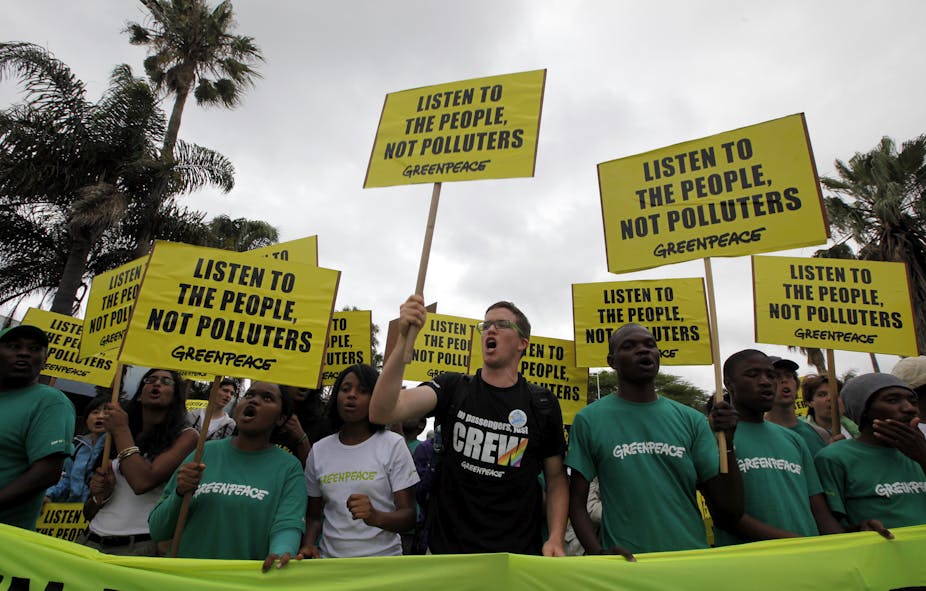Post the Cold War and in the age of high finance, the performance of narrow representative democratic politics has spawned three types of presidential politics
There are the populist presidents. These include Italy’s Sylvio Berlusconi the US’s George Bush and South Africa’s Jacob Zuma. Policy is made on the hoof, is erratic, and there is no moral and intellectual leadership except to allow markets to rule.
Then there is the technocratic ruler guided by the numbers, markets and keen to ensure policy-making is about certainty and the right signals. This is about being a manager of deep globalisation. Bill Clinton, Germany’s Angela Merkel and South Africa’s Thabo Mbeki epitomised this.
Finally there is the statesman who is a visionary trying to ensure a home grown master narrative and a strategic class project. They carry a cross section of social forces and invent innovative engagements to shape a globalised political economy. Bolivia’s Evo Morales and Nelson Mandela stand out.
The 2016 State of the Nation Address provides President Zuma with the opportunity to make a clean break with his populist leadership style and take the sort of actions that are likely to make him unpopular. But, that might be a very tall order for Zuma.
What it will take for Zuma the statesman to emerge
Zuma can be a statesman if he embraces and articulates the following three priorities.
Firstly he needs to call for a new mode of governance to tackle the ecological crises facing the world, South Africa and Africa. As the starkest expression of this crisis he actively champions climate emergency governance to ensure systemic adaptation and mitigation.
This means the drought narrative is shifted away from being a national disaster to being part of the “new normal” of climate shocks that requires a new paradigm of state practice, governance and citizenship. He stakes this out as a response to the crises of capitalist civilisation and the need for a just transition to sustain life. Central to this is reaffirming a non-racial approach to these challenges to unify South Africa.
Secondly he affirms a policy shift to climate emergency governance. This means moving policy in the direction of a new metric of sustaining life and a low carbon society. He actively calls for transitional policies that deepen mass initiative. These could include:
climate jobs,
a universal basic income grant set at a high level to enable choice,
integrated public transport,
food sovereignty pathways,
solidarity economies,
participatory budgeting at municipal level,
zero waste,
socially owned renewables,
the lifting on the ceiling of renewables in the national energy mix and calls for the establishment for a socially owned renewables parastatal,
rights of nature legislation,
scaling up cooperative banking in every locale,
a new sustainable water management framework,
a suite of new progressive carbon taxes and the retrofitting of households, government buildings and private corporations with locally manufactured renewable energy technology.
At the same time, he announces an end to fracking and all nuclear deals and sets a deadline to stop producing coal. In addition, he calls on unions to work with government to ensure workers use the climate jobs policy and universal basic income grant to leave behind dirty industries.
He streamlines government by introducing a new democratic planning ministry to work with local governments. It absorbs trade and industry, minerals, energy, environment, water, public transport, local government, agriculture, local development, housing and the finance ministries. And he commits to dismantling provinces through a constitutional amendment to be replaced with three inter-provincial administrations.
He calls for a new policy on politicians’ salaries and perks so they are not so excessive. To professionalise the public sector, he calls on the public services commission to improve working conditions for health professionals, teachers, municipal workers and government administrators.
Finally, he announces a revamp of foreign policy which entails re-priorisiting Africa, instead of the BRICS. Africa has and will be hit hardest by climate warming. Yet it does not have the necessary finance, technology and institutional capacity to deal with this. Commitments made by Western countries to Africa at Cop 21 are dismal. Africa is meant to be a zone of climate chaos.
Zuma needs to challenge this by calling for the development of a just transition and climate emergency plan for Africa through the African Union. All foreign engagements would be realigned with this imperative.
Why none of this will happen
All of this will not happen because Jacob Zuma is not a statesmen. It also won’t happen because the ANC-led alliance is married to a fossil fuel and extractivist accumulation path and fixated on a growth-centred version of deep globalisation. This despite the fact that it has not worked and is the opposite of remaking society to fit into ecological constraints to survive.
Finally it will take more climate shocks to wake up the world’s ruling elites and citizenry to understand we have entered unchartered territory in human history.
We are now officially at a 1°C increase in planetary temperatures since the industrial revolution. And we are rapidly heading towards a 2°C increase this century. We need to think, act and govern differently if we are to survive and ensure future generations have hope.

